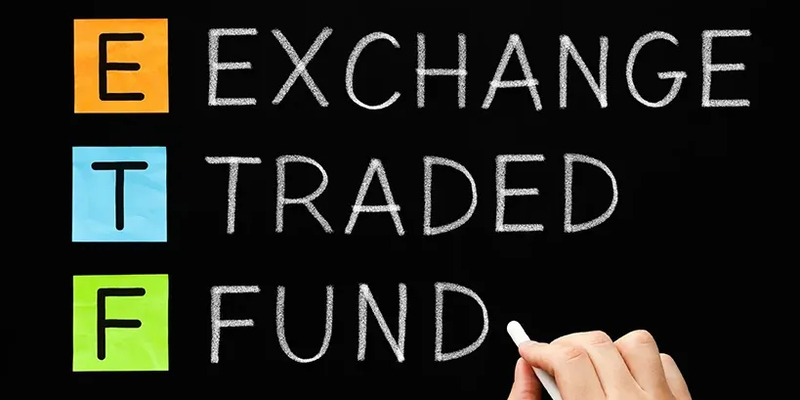The transmission of assets and financial advantages from one generation to the next, commonly referred to as Generational wealth, holds significant importance in shaping our economic landscape. While it is considered a symbol of financial stability, its implications go beyond individual prosperity and have a substantial impact on wealth distribution throughout society.
This article aims to explore the crucial role of Generational wealth in creating and exacerbating the Wealth gap. By examining its profound influence on economic disparities, we intend to unravel the dynamics that contribute to this generational challenge.
Vital Elements of Generational Wealth
The transfer of financial assets or resources across family lines is what Generational wealth is all about. It is a concept that plays a crucial role in shaping the economic and social fabric of individuals, families, and communities. Besides monetary value, Generational wealth encompasses a broad spectrum of valuable assets that have a lasting impact through generations.
Financial Assets Transmission
Generational wealth has the potential to create a legacy of financial stability and security that spans multiple generations within families and groups, providing a foundation for long-lasting economic well-being.
Inclusive Assets
Generational wealth is composed of a wide array of assets, such as cash, stocks, bonds, real estate, businesses, and other valuable possessions. This diversity provides a comprehensive perspective on the wealth being passed down through generations.

Measurement Metrics
When it comes to assessing Generational wealth, it is essential to take a multifaceted approach. This means considering a range of indicators, such as net worth, income, inheritance, homeownership, and education. By taking a comprehensive view of these metrics, we can gain a deeper understanding of the economic legacy that is passed down from one generation to the next.
Influencing Factors
Various factors play a crucial role in the formation of Generational wealth, including family dynamics, societal expectations, economic policies, legal frameworks, and historical contexts. These elements collectively impact the extent and character of wealth transfer, shaping the financial landscape for future generations.
Societal Impact
Understanding the impact of Generational wealth on societal outcomes is essential for addressing economic disparities. It is widely recognized that this influence extends to dimensions such as poverty, inequality, mobility, opportunity, and overall well-being. Taking into account these broader consequences is crucial for devising practical solutions to tackle economic inequalities. Therefore, we must acknowledge and comprehend the profound influence of Generational wealth accumulation on our society.
Bridging the Generational Wealth gap: Practical Solutions and Strategies
Bridging the Generational Wealth gap requires immediate and effective action. This disparity in financial resources between age groups hinders economic equality and social mobility. To tackle this issue, we need to implement actionable strategies and solutions. Here are some measures that can help us bridge the Generational Wealth gap.
Progressive Taxation of Wealth
One effective way to tackle economic inequality and finance social programs and infrastructure that benefit people of all ages is to introduce progressive taxation on wealth. By doing so, we can redistribute financial resources from older, wealthier generations to younger, less affluent ones, promoting more significant intergenerational equity. This would not only help bridge the economic gap but also ensure a fairer distribution of resources and opportunities for everyone.
Strengthening Tax Credits
Enhancing tax credits like the Earned Income Tax Credit (EITC) and Child Tax Credit (CTC) is an effective way to provide financial assistance to lower and moderate-income families, especially those with children. These credits can significantly improve the income and savings of younger generations, contributing to the reduction of poverty and economic disparities.
Reparations for Historical Injustices
It's important to acknowledge and take responsibility for past injustices, especially those that have led to economic disparities for marginalized communities such as Black Americans. Providing reparations can be a constructive step towards achieving economic justice and closing the Wealth gap. It can offer opportunities for these communities to thrive and contribute to a more equitable society.
Targeted Homeownership Subsidies
It is critical to acknowledge that affordable homeownership is an essential factor in driving wealth. To bridge the racial and generational disparities in homeownership rates, targeted subsidies must be provided to younger generations. This action can significantly help them purchase homes, which can lead to enhanced stability and inter-generational wealth transfer.
Lowering Higher Education Costs
Effectively managing the financial obstacles that come with higher education is key to achieving academic and personal goals. Finding ways to lower the costs and alleviate the burden of student debt can significantly benefit the younger generation, allowing them to build their wealth without being burdened by excessive educational debt.

Passing Down Financial Know-How
Encouraging cross-generational communication and cooperation by sharing financial knowledge can be a robust tool for empowering younger individuals. By learning from the insights and expertise of older generations, we can improve financial literacy and foster stronger family and social relationships.
Access to Financial Services
Facilitating access to a range of financial services and products can significantly assist the younger population in managing their finances efficiently. It is essential to offer various investment, savings, and wealth growth opportunities to ensure long-term financial stability.
Promoting Age Diversity in the Workplace
Promoting age diversity and inclusivity in the workplace cultivates a collaborative environment where individuals from different generations can work together. By leveraging the distinctive strengths and perspectives of each age group, it is possible to diminish age discrimination and boost overall workplace contentment.
Encouraging Civic Engagement
It is crucial for individuals of all generations to actively engage in civic duties and make their voices heard to influence policies. The democratic process provides an opportunity for diverse age groups to come together and collectively shape decisions that have a direct impact on their lives.
Final Thoughts
Generational wealth, whether inherited or self-made, plays a pivotal role in shaping wealth inequality. The evidence suggests that both factors significantly contribute to the Wealth gap. While inheritances can decrease overall inequality, they simultaneously amplify the dispersion of wealth. Addressing the Generational Wealth gap requires a multifaceted approach, including progressive taxation, targeted subsidies, and financial education.
By recognizing the impact of Generational wealth on economic disparities, societies can implement constructive policies that foster equality and provide opportunities for all. Bridging the Wealth gap demands a commitment to systemic change, ensuring a more equitable distribution of resources and opportunities for future generations.




